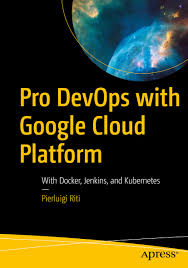Pro DevOps with Google Cloud Platform: Leveraging Docker, Jenkins, and Kubernetes
Introduction
DevOps has emerged as a transformative approach to software development, emphasizing collaboration between development and operations teams to deliver high-quality applications rapidly. Google Cloud Platform (GCP) offers a comprehensive suite of tools and services that can significantly streamline DevOps workflows. This white paper explores how to effectively leverage Docker, Jenkins, and Kubernetes on GCP to implement robust and scalable DevOps practices.
1. Understanding the DevOps Philosophy
-
Collaboration: Fostering collaboration between development and operations teams to break down silos and improve communication.
-
Automation: Automating repetitive tasks to reduce errors, increase efficiency, and enable faster deployments.
-
Continuous Delivery: Implementing a pipeline of automated processes to deliver new features and updates frequently.
-
Continuous Integration: Integrating code changes into a shared repository and testing them automatically.
2. Leveraging Docker for Containerization
-
Container Basics: Understanding the concept of containers and their benefits over traditional virtual machines.
-
Docker on GCP: Using Compute Engine instances to run Docker containers and Container Registry for storing container images.
-
Docker Compose: Orchestrating multiple containers as a single unit using Docker Compose.
3. Implementing Continuous Integration with Jenkins
-
Jenkins on GCP: Deploying Jenkins on a Compute Engine instance or using Cloud Build for serverless CI/CD.
-
Pipeline Creation: Defining a Jenkins pipeline to automate build, test, and deployment processes.
-
Integration with GitHub/GitLab: Connecting Jenkins to source code repositories for continuous integration.
4. Managing Containers with Kubernetes
-
Kubernetes Basics: Understanding the core concepts of Kubernetes, including pods, services, deployments, and namespaces.
-
GKE Cluster Creation: Setting up a Kubernetes cluster on GCP using Google Kubernetes Engine (GKE).
-
Deploying Applications: Deploying containerized applications to the Kubernetes cluster using YAML files or the Kubernetes API.
5. DevOps Best Practices
-
Infrastructure as Code (IaC): Using tools like Terraform or CloudFormation to manage GCP infrastructure declaratively.
-
Monitoring and Logging: Implementing monitoring and logging solutions to track application health and identify issues.
-
Security: Ensuring security best practices, including access control, vulnerability scanning, and data encryption.
-
CI/CD Pipelines: Optimizing CI/CD pipelines for speed, reliability, and efficiency.
6. Case Studies and Real-World Examples
-
Microservices Architecture: Demonstrating how Docker, Jenkins, and Kubernetes can be used to build and deploy microservices-based applications.
-
Continuous Delivery: Sharing success stories of organizations that have implemented continuous delivery using GCP tools.
Conclusion
By effectively combining Docker, Jenkins, and Kubernetes on GCP, organizations can significantly enhance their DevOps practices and accelerate software delivery. This white paper provides a solid foundation for understanding and implementing these technologies in a cloud-native environment.
PS: contact ias-research.com for details.
References
Note: These are some general references to get you started. For a more comprehensive list, consider consulting specific textbooks, research papers, or online resources related to DevOps, Google Cloud Platform, Docker, Jenkins, and Kubernetes.
Books
-
Kubernetes: Up and Running: By Kelsey Hightower and Joe Beda
-
Docker: The Definitive Guide: By Jeff Nickoloff and Scott Johnston
-
Jenkins: The Definitive Guide: By Mark Waite
-
Google Cloud Platform Professional Guide: By Mark Russinovich, Azure, and Cloud Platform Team
-
DevOps Handbook: By Gene Kim, Patrick Debois, John Willis, and Jez Humble
Online Resources
-
Google Cloud Platform Documentation: https://cloud.google.com/docs
-
Docker Documentation: https://docs.docker.com/
-
Jenkins Documentation: https://www.jenkins.io/
-
Kubernetes Documentation: https://kubernetes.io/
-
DevOps Community Forums: https://stackoverflow.co/teams/use-cases/devops/
Research Papers and Articles
-
Towards Data Science: Blog posts and tutorials on data science and DevOps
Specific Topics
-
Microservices Architecture: [Relevant books or articles]
-
Continuous Delivery: [Relevant books or articles]
-
Infrastructure as Code: [Relevant books or articles]
-
Security Best Practices: [Relevant books or articles]
Please note that these references are a starting point. It's essential to tailor your reading list based on your specific needs and interests within the field of DevOps and cloud-native technologies. contact ias-research.com for details.



